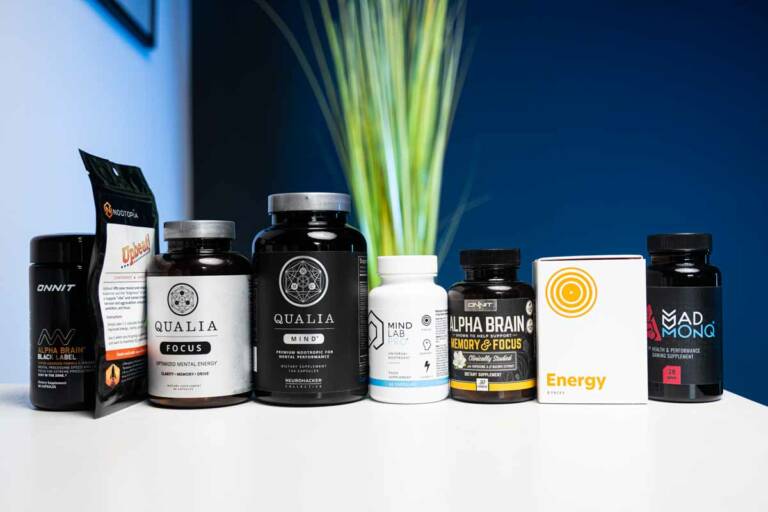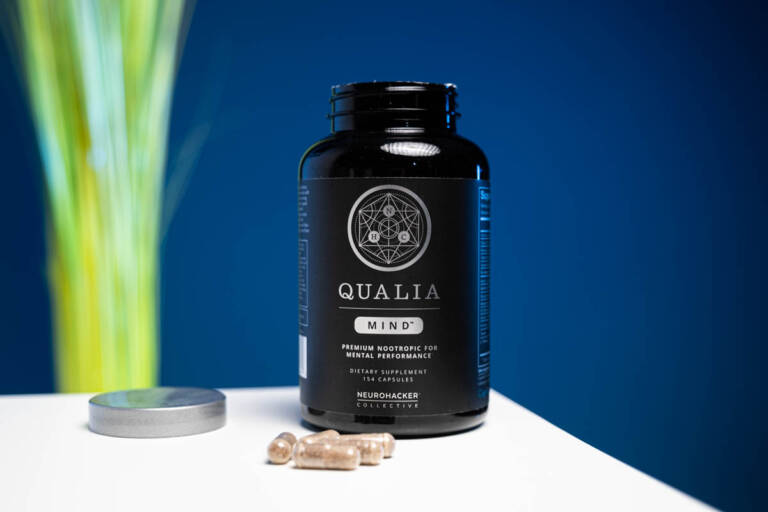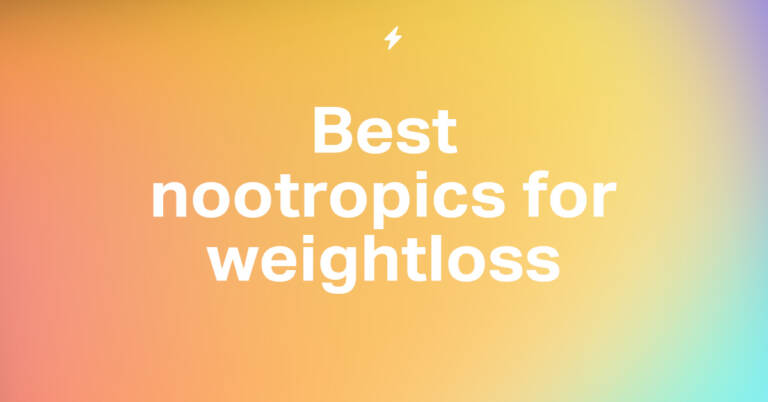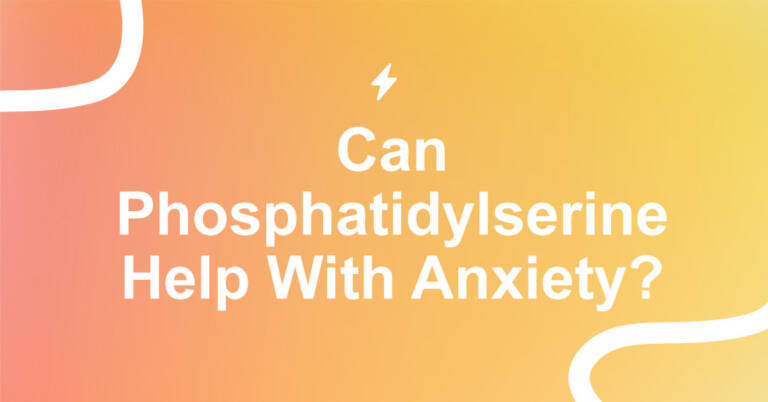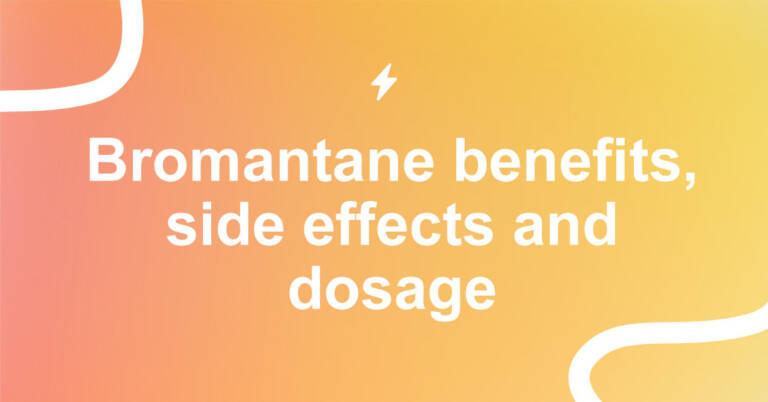Since the Limitless movie hit the cinema for the first time, people started going crazy about hacking their brains. It seems that biohacking, brain hacking, lifehacking, and other similar terms didn’t even exist before this movie. But this is not true for nootropics, our main interest. The first nootropics have been used for centuries, and the first known synthetic nootropic was developed in the 70s.
So, what exactly are nootropics, what benefits do they bring, are they safe? That’s what we are about to answer in this nootropics guide. Oh, and we will share the best nootropics you can currently find on the market with you.
Nootropics Guide
It seems that nootropics have been around for a long time, but due to lack of research, we didn’t understand them. Therefore, they were not popular. But their popularity has increased in the past years. Hundreds of new companies, products, and millions of dollars are being spent on nootropic research.
There are many biohacking events, online communities, independent reviewers experimenting with nootropics, and newly developed nootropic supplements. Due to the significant industry growth, there is also a lot of fake news, misunderstandings, and unsafe products on the market. Since the FDA does not regulate nootropics, any start-up with a budget of $10.000 can start selling their new “limitless brain pill.”
In this nootropics beginners guide, you will find all the vital information about nootropics and nootropic supplements. If you search for more detailed explanations, you will find additional useful resources below each topic.
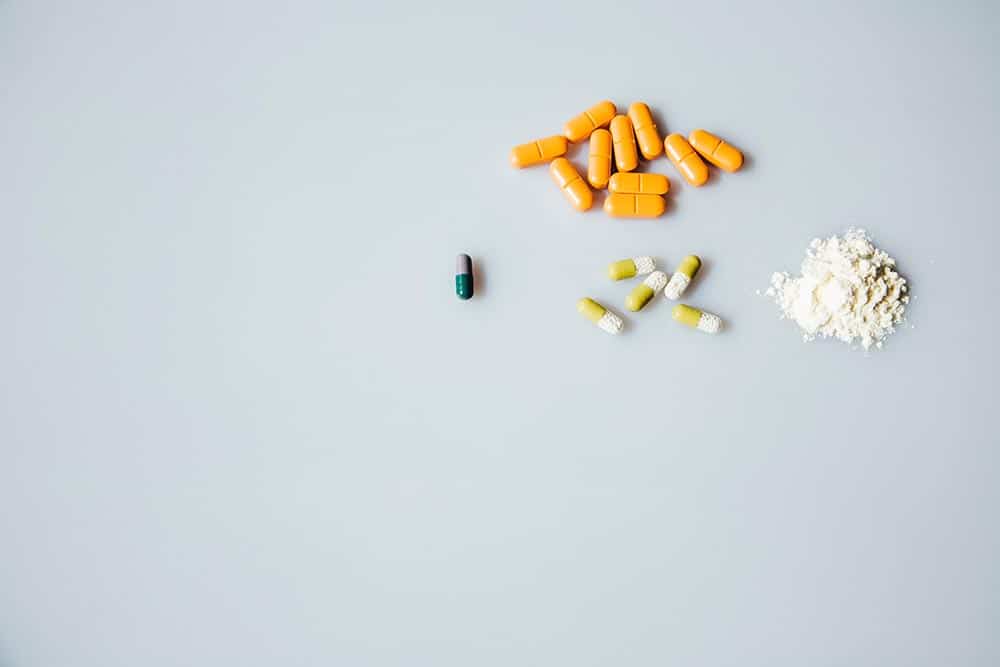
A Short Definition Of Nootropics
By definition, nootropics are substances, supplements, and other cognitive enhancers that can improve our focus, memory, creativity, and motivation. [1] They can also improve our overall health and sleep.
They are side-effects free and safe for supplementing. For a more extended definition, click here: What Are Nootropics?
Types Of Nootropics
We can currently find over 85 compounds classified as nootropics. We sorted all nootropics in our nootropics list. In general, we sort nootropics in 7 categories:
- Herbs and adaptogens
- Amino acids
- Vitamins and minerals
- Phospholipids
- Choline sources
- Antioxidants
- Stimulants
In addition, we can also sort them as natural and synthetic nootropics.
Herbs and adaptogens
Many herbs have been used for centuries to improve cognitive performance in individuals. Others have been used for helping people to calm down, getting more relaxed, and deal with anxiety.
Nootropic herbs have a long proven history of being safe and effective for use in healthy individuals. In the past 20 years, there have been many studies done on herbs to confirm many of their positive benefits. There is, however, still much to uncover and understand about nootropic herbs.
Our most popular herbs are Bacopa Monnieri, Rhodiola Rosea, and Lion’s Mane mushroom.
Amino acids
Amino acids are compounds that form proteins and can be used as nootropics. Amino acids can work as brain chemicals or as a material to create brain chemicals.
Two amino acids are most commonly used as nootropics:
- L-Theanine – an amino acid great for making people relaxed and enhancing focus
- L-Tyrosine – enhancing cognition in stressful situations
Many other amino acids are important for overall health and performance, but we can get them with food.
Vitamins and minerals
Some vitamins and minerals are crucial for healthy brain functioning. We need to get an adequate amount of them, so our essential cognitive functions work well.
Some of the most important vitamins are:
- Vitamin B6
- Vitamin B9
- Vitamin B12
- Vitamin D3
The crucial minerals are magnesium, iron, and zinc. All of them play many important roles in our bodies. To mention a few, they take care of our brain function and help us stay cognitively sharp.
Phospholipids
Phospholipids are nootropics that, in general, ensure healthy brain cells by providing material for cell regeneration and repair. Among other functions, they keep brain cell membranes fluid.
Choline sources
Choline is a vitamin-like nutrient that is important for normal metabolism and the synthesis of neurotransmitters. Most people get an adequate amount of choline from food, but studies show that supplementing choline could speed up brain regeneration and may provide other benefits on cognitive performance.
Great choline sources are Citicoline and Alpha GPC. Citicoline (as Cognizin) is a synthetic nootropic that has been well-studied on different target groups. It is our favorite choline source.
Antioxidants
The primary role of antioxidants in our brains is to protect it against damaging free radicals, which accelerate aging. Many antioxidants are very effective, but only a few cross the blood-brain barrier.
They protect the brain, support nerve growth factor, and ensure better blood flow to the brain. Antioxidants may slow down aging and cognitive decline.
Stimulants
Stimulants reduce fatigue and drowsiness in healthy individuals. They improve our brain performance, speed of thinking, energy, and even mood. Also, they positively influence our physical performance.
Stimulants are often added to nootropic supplements to provide cognitive benefits. Also, they work well with specific amino acids to extend the positive effects.
Our favorite stimulant is caffeine, combined with the amino acid L-Theanine.
Natural Vs. Synthetic Nootropics
You can currently find over 80 natural and synthetic nootropics on the market. The original nootropic (Piracetam) is synthetic, while most supplements nowadays contain mainly natural compounds.
Natural Nootropics
People used many natural nootropics for centuries due to the benefits they provide. They are compounds extracted from plants, herbs, trees, leaves, mushrooms, and even barks.
Most are proven safe and effective at specific daily dosages. They can influence your brain and body in various ways. Most of them support memory, focus, and mental alertness by boosting neurotransmitters.
Since they are natural, they are legal in many countries around the world, including in the US, UK, Australia, Canada, and the EU.
Synthetic Nootropics
Synthetic nootropics are compounds that are synthesized in the labs by biochemists, biologists, and other experts. The most commonly known group of synthetic nootropics are Racetams. They can provide similar benefits to natural nootropics, but they lack long-term studies. The long-term use of synthetic nootropics is questionable from the safety stand-point.
Since they are “unnatural,” they are not allowed for sales in the US and many other countries.
Recently, a few synthetic nootropics have been proven safe and got permission for sales in the USA, EU, and the UK. One of them is Cognizin, a synthetic version of citicoline.

Do They Really Work?
People often ask us if nootropics really work, what to expect from them, and how long should we take them to feel the benefits.
The answer to the main question is yes, nootropics really work. They can make you more alert, more focused, more motivated, more energized, more motivated, more creative, and healthier.
If you understand the underlying biochemistry, you can quickly see how each nootropic compound influences our performance.
However, nootropics are not magical pills. They don’t instantly increase your IQ. They don’t improve your performance by 50% or 500%. They won’t turn an underperformer into a superhuman overnight.
Instead, they can provide the additional brainpower that will help you work slightly longer and better. Nootropics set the foundation for optimal long-term performance.
To learn more about the benefits, click here: Nootropic Benefits
How Long Until You Feel The Effects?
Most natural nootropics provide positive benefits in about 15 – 45 minutes after you take them. Typical short-term effects include:
- increased alertness
- improved mood
- enhanced energy
Other nootropics provide mainly long-term benefits. They can slow down your cognitive decline, help with neurodegeneration, and improve your overall brain performance.
It is required to take them for several weeks or months before you get the benefits. We recommend combining both short term and long term nootropics for optimal performance.

Who Is Taking Nootropics?
Nootropics can be beneficial for every living person, no matter the age, gender, race, ability, etc. Here are some of the groups that typically get a lot of benefits from nootropics:
- Professionals across all fields
- Managers, entrepreneurs, CEOs…
- Students
- Athletes
- High-achievers
- 50+
Once you know what kind of goals you want to achieve with nootropics, you can find the perfect nootropic stack (a mix of nootropics) to support your goal.
For example, younger professionals usually need more focus, energy, and brainpower. Managers need similar effects with added nootropics to decrease stress and anxiety. Athletes need a better physical and mental performance. The 50+ group usually wants to slow down cognitive decline, and nootropics can help them out.
Are They Safe?
This simple question requires a more complex answer. When we talk about nootropics, we know that by definition, they must be safe and side-effects free. But this doesn’t mean that all nootropics are safe.
We tested over 150+ nootropic supplements since 2015. In this period, we have read hundreds of articles, research papers, and studies to understand the efficiency of nootropics and their safety.
Many natural nootropics are safe for most people if you take them as experts and brands recommend. This means that you have to follow the recommended daily dosage.
But you can also buy potentially hazardous nootropics without even knowing it. That is why we created this small guide on how to find safe nootropics. To check it out, click here: Are nootropics safe?
Click here to learn more about nootropics side effects >>
By the way, below this post, you will find a list of the best and safest nootropics on the market.
Nootropics vs. Smart Drugs
We often warn different “experts” that nootropics are NOT EQUAL to smart drugs. Due to this confusion, many people risk their health by supplementing smart drugs instead of nootropics.

Here is a fundamental difference: Nootropics are mainly natural compounds that can provide positive benefits on our brain performance without leaving any side-effects. Smart drugs are mostly prescription drugs used for treating sleep disorders, ADHD, and other sicknesses. Such drugs can enhance performance in healthy people, but can also leave severe long-term side effects.
The most well-known smart drugs are Adderall, Modafinil, and Ritalin. We have tested them out to compare the benefits to nootropics. They do provide intense short-term focus, but they lack a whole range of other essential benefits. Due to the severe side effects, we do not recommend taking smart drugs.
Are Nootropics Addictive?
Most nootropics are proven safe and nonaddictive. They can provide benefits even after you stop taking them. However, a few nootropics (mainly stimulants) can be addictive.
You can study each nootropic to understand the risk of potential addictiveness. If you want to, you can send us a list of your favorite nootropics, and we will do that for you.
However, all of the nootropic supplements that you will find on the list below are nonaddictive if you follow the rules. But we still recommend cycling nootropics – this means taking them for five days in a row and staying two days off.
Even if you are taking stimulants (like caffeine), you will decrease the risk of getting addicted.
Keep in mind that most natural nootropics are nonaddictive, so you don’t have to worry about that.
Homemade Nootropic Stacks Vs. Premade Stacks
We mentioned nootropic stacks several times throughout this post. To clarify it for everyone, nootropic stacks are supplements that combine multiple nootropics — most stacks that we tried contain from 5 – 28 nootropics.
Combining nootropics is useful for achieving multiple benefits at the same time. We highly recommend it.
You can make your nootropic stack or buy a premade one. We suggest everyone buy a premade nootropic stack because they are usually more affordable, safer, more effective, and much more researched.
Which Are The Best Nootropics?
We finally reached the essential part of our guide, where we share the best nootropics and nootropic supplements for you. Before we do that, we want to clarify something for you:
- Our recommendation is based on an advanced evaluation system that we developed. You can read more about it here >>
- We are NOT sponsored by any brands, and we never promote brands that want to pay us for positive reviews
- We regularly modify our lists of best nootropics based on the new results we gather
- Our team takes the best supplements that we recommend
- We do get affiliate fees for some nootropics that we recommend – we use the funds to run our blog, YouTube channel, and do all the tests
- If you have any concerns, please send us an email to [email protected]
So, which are the best nootropics on the market? Please check our most comprehensive and updated list here: Best nootropic stacks
That’s where you will find the best nootropic supplements for yourself.
Verdict
We started experimenting with nootropics in 2015 when they were still pretty unpopular and unknown. Since then, we tried over 150+ nootropic supplements, individual nootropics, and homemade stacks.
There is no doubt we love and recommend taking nootropics. They can provide amazing benefits without leaving adverse side effects. We believe that their popularity will continue growing. With that, we hope more research will be done in this field as well. It would help us all understand nootropics even better.
Until then, we will continue providing know-how, experimenting, and reviewing nootropic supplements. And we will continue sharing our findings with you.
